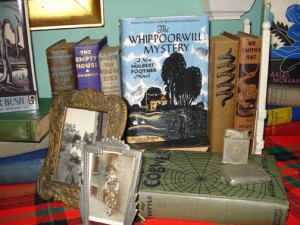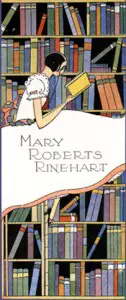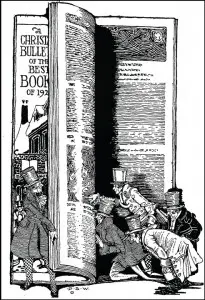 To inscribe, or not to inscribe, that is the question. Whether tis’ n0bler to splatter your name indecipherably across the page, or to write a heartfelt little ditty. . .
To inscribe, or not to inscribe, that is the question. Whether tis’ n0bler to splatter your name indecipherably across the page, or to write a heartfelt little ditty. . .
In days long ago, mystery authors did not sign as many books as they do today. The publishers didn’t demand they be their own publicists and salesmen, that was the publishers job. Plus, signed books was not an industry, as it is now. But with the hypermodern market wafting and waning (more waning recently) and sometimes exploding, a signature is a deadly serious business.
As a rule, buyers and collectors today only want the signature. They may want to resell a book, or keep for their grandchildren hopefully increasing in value, and they don’t want a specific note such as “To Eunice, hope your kitty feels better”. They worry the inscription would prevent it from selling down the line–the buyer of said title didn’t know Eunice, or her kitty, and the inscription would mean nothing to them. And in this current market, the seller of an inscribed book would be correct. However, as I aforementioned, earlier days authors signed fewer books. And most were inscribed to people they knew. The owner of the book was thrilled to have an author write some personal piece reflecting their experience with the writer. And, the value was not compromised because of the scarcity of books with either signature or inscription.
Today, it’s a rarity if an author doesn’t sign their books. Publishers, booksellers, publicists, and the public understand that a book signed makes it a little more special, more interesting. Especially in the case of first time authors, whose book may have a small printing. The smaller the printing, the more value the book could possibly have in time. I stress possibly, because the market for first editions with small print runs has declined from the glory days in the 1990s. Still, a signed first is better than one not. I don’t know if publishers are still doing this, but at one time if author say, Ruth Rendell couldn’t get away to tour the USA, they’d bring stacks and stacks and stacks of pages–not the title page, unfortunately, but a blank one usually before the half title, and had her sign all of them. Not all zillion copies her first runs usually have, but a certain amount shipped to independent bookshops. But, because it’s signed on a different page than the title, it’s clear she didn’t sign in person, and believe it or not, that affects the value down the line.
The accepted correct place for an author to sign is under the title, and above their names. Some collectors want it dated, but only within the first few months of the release. This proves it was signed *at the time of its first coming out* not years later when a collector brings his books to a signing expecting the author to not only sign his new book, but tons of older ones. The older signed book is perfectly fine, no one can determine precisely when it was signed, but a date is a nice extra.
There is a way to ascertain some authors signatures as to what time frame they signed -the look of the signature. Robert Parker’s signature was impossible to read by the advent of my acquaintance. But early titles had a much different signature, one that could be understood as *Robert Parker*, not big squiggle, littler circles, with flourishes. Why did his autograph radically change? There was no way he could maintain lovely loops after the 10,000th signature. Also, time is always a concern–if he had a half hour to get through 200 books, his signature better take up very few precious seconds–and believe me, Parker’s did. So, if one of his first books has a signature of swirls, it was obviously not signed at the date of release. If it can be read, it means not only does it have a signature on a title with a lesser print run, but it was signed at the same time it was printed. Which for some collectors make it more desirable.
There are still some buyers that crave a personal salutation. Most are people who don’t collect for any intended value but for the pleasure of knowing a favorite author wrote Dear Prudence, Many Thanks, Margaret Maron. Because that is about all you are going to get–Dear someone, thanks, or best wishes, or regards, or some clever saying pertaining to their title or series. For example–Edna Buchanan, a gritty great Miami newspaper reporter turned writer used to inscribe something along the lines of “Good thing we have guns”. Another author whose character was a professional housekeeper always inscribed “keep it clean”. If an author finds a perfect sales line for their series, they tend to stick to it, even if they’ve used it for years.
The exception to the ‘don’t inscribe’ mantra for collectors, is if one author signs for another, or the book is inscribed to someone important within the book business. Because then the signed book becomes a association copy. A famous collector of crime fiction and former publisher has every single book inscribed to him, and he then adds it to his vast collection. If the collection is ever sold, the value of the inscribed copies would be maintained, if not increased by the very fact of a famous author writting something personal to a famous book collector/publisher. I bought a book once inscribed by the author, Stuart Palmer, to a fellow Hollywood and mystery writer, Horace McCoy. Or so the seller claimed. Because in reality, unless the last name of the intended is included, there is no way to prove that Horace isn’t the farmer milking his cows down the street in a town Palmer visited. And there lies another problem. Unless authentication is supplied, value can disappear. So, with each book inscribed to the famous collector when sold, it would be beneficial to include a statement signed by the seller, of who, what, where, and how those books were derived.
another, or the book is inscribed to someone important within the book business. Because then the signed book becomes a association copy. A famous collector of crime fiction and former publisher has every single book inscribed to him, and he then adds it to his vast collection. If the collection is ever sold, the value of the inscribed copies would be maintained, if not increased by the very fact of a famous author writting something personal to a famous book collector/publisher. I bought a book once inscribed by the author, Stuart Palmer, to a fellow Hollywood and mystery writer, Horace McCoy. Or so the seller claimed. Because in reality, unless the last name of the intended is included, there is no way to prove that Horace isn’t the farmer milking his cows down the street in a town Palmer visited. And there lies another problem. Unless authentication is supplied, value can disappear. So, with each book inscribed to the famous collector when sold, it would be beneficial to include a statement signed by the seller, of who, what, where, and how those books were derived.
All this being boringly stated, I LOVE inscriptions, so long as they’re to me! I don’t care about selling them later and honestly, I don’t believe 50 years from now it will make a darn bit of difference in terms of value. But, and this but is important, I’ve worked closely with authors, some are friends, therefore an inscription may mean more to me than the average joe. And, if I were to become famous somehow, like say killing some other bookman (yes, I have a few in mind), then my inscribed tomes would increase in value as they too would become association copies!
 I love love love imaginative inscriptions, so much so, when I shipped books to authors’ homes, I’d include my review copy with a large note asking them to write something neat or pithy. An author took me at my word, and wrote: “To Diane, Something Pithy.”
I love love love imaginative inscriptions, so much so, when I shipped books to authors’ homes, I’d include my review copy with a large note asking them to write something neat or pithy. An author took me at my word, and wrote: “To Diane, Something Pithy.”
I have had some lovely inscriptions from favorite authors, many who had come to know me a bit. For example–For Diane, My good friend in New York, thanks for the hard work and support, Michael Connelly. And John Dunning: ‘A real life ‘Alice’ whose passion for mayhem, will, I hope, be fulfilled here! Thanks for all of your wonderful words on Booked to Die. John 4. 20. 95″ And a very creative one: “July 22, 1996 Diane, Thanks for getting me liquored up in the store. The drugs were good too. Hopefully you’ll enjoy this soft tale of the gentle love between a boy and his panda. Best, Dennis Lehane.” And one that baffles me still: “Diane, You lied. Walter Mosley” I believe he was speaking about how many books I told him he would need to sign, and it turned out to be more than expected, but who knows, lol.
But, I more regularly received the usual: “To Diane, Thank you for all your support” Nice, yes, appreciative, of course. But after awhile, I began to feel like a jock strap or Maidenform bra!
Now I have bookcases jammed full of new inscribed titles pristine in Brodarts (mylar transparent covers) overflowing whatever space exists. I try to weed some out, to take to a library or sell on ebay, amazon. But then I turn to the title page and see some really lovely sentiment for me, and I well up with warmth, as I return it to the shelf.

Diane,
A very illuminating article for someone who loves books but doesn’t sell them. I was just talking about this subject with a good friend last night: how far can a signed book raise its value? We agreed that monetary value means little to us as readers; a personal inscription increases our attachment to the book & author and increases the likelihood of our buying authors’ subsequent works. The mass-signed books, when I don’t even meet the author, are far too gimmicky in my mind but I’m not a consumer of “name goods”, be it a book or a pair of pants! I didn’t know the points you made here about where and when a signing occurs, or that its resell value decreases with a personal inscription. You can see I’m not a book collector, I’m sure, as I’m more greedy for the story, though of course a pretty package is a bonus and I will buy a book just for one illustration by Emanuel Eschongut for example, but the signature? I’m like you: the personal inscription is the tops! One of my fav authors is in town tonight at Powells Books but will I go? Probably not. His books are all pre-signed ( and the store is an hour’s drive). Would I be going if it was an in-store signing? I’d be getting ready now at 11:00 am!!
I hope this comment from a non-seller of books is not off-base. I enjoyed this article, your writing is excellent! And your controversial article on POD books and the comments it incited? That was good reading and valuable points were made on both sides but I’m keeping mum. Perhaps you are keeping an ear cocked for the postman’s ring yourself? I’m looking forward to your next post.
Nancy, hello there! How odd! The author will be in store, but not sign books? Listen, nothing surprises me anymore. I went to a Lisa Scottoline signing at a B&N last year, and we had to take numbers!! I am not kidding you. Just like a deli line. And numbers whatever through whatever were to go up with their book, and then the next and the next. Wacky, and very annoying. Lisa was fantastic, and had zero to do with how her signing was set up.
And no comment is off base, whether a bookseller, buyer, librarian(which by the way are angels on earth), etc., etc.
I’ll probably tackle the subject of hypermodern books next, ick. That will explore the entire phenomenon of books as a commodity.
Gee whiz, if I’ve been getting flack just for *collecting* books, imagine the hullabalu collecting them for some sort of investment there will be.
Oh well, say la vee, ha ha.